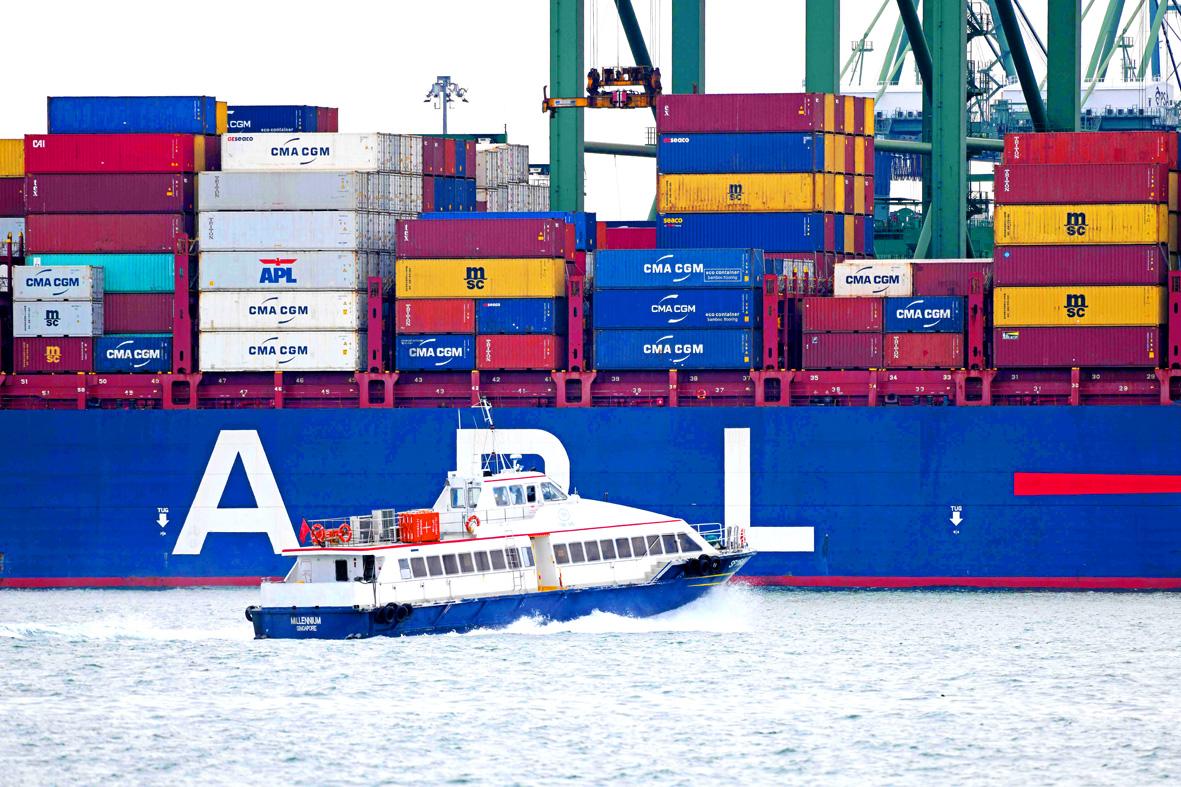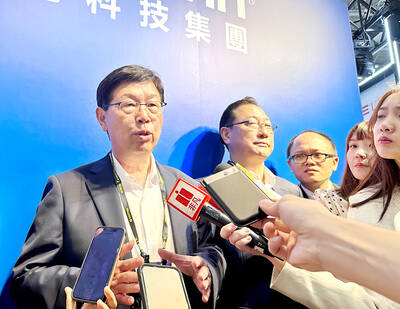Singaporean Deputy Prime Minister Heng Swee Keat (王瑞傑) yesterday announced additional support measures of S$8 billion (US$5.84 billion) to cushion the blow from the COVID-19 pandemic, extending wage subsidies and aiming to shore up the hard-hit aviation and hospitality sectors.
The new set of measures, announced almost three months after the last package, adds to Singapore’s total pledged pandemic aid of almost S$100 billion, Heng, who is also minister of finance, said in a taped speech.
While Singapore has managed to bring virus cases under control, the global economy “remains very weak,” Heng said.

Photo: AFP
“We must continue to adapt to the rapidly changing situation. We designed our measures to give us flexibility for adjustments as the crisis progresses. Some of these measures are ending soon,” he said.
The latest measures would not require any additional use of past reserves beyond what was already approved, Heng said.
Unused expenditures from earlier budgets would help fund the latest measures, allowing the government to narrow the projected budget deficit this fiscal year by S$100 million since the fourth package was announced in May, to S$74.2 billion.
Further support was deemed necessary as the city-state has fallen into a technical recession, retail and hospitality sectors are struggling to recover from months of mobility restrictions, and officials have warned of further retrenchments through year-end.
Singapore’s economy shrank a record 42.9 percent on an annualized basis in the second quarter from the previous three months, data last week showed, with Singaporean Minister for Trade and Industry Chan Chun Sing (陳振聲) warning there could be “recurring waves of infection and disruption.”
Export figures released yesterday showed tentative signs of recovery in July, with non-oil domestic shipments jumping 6 percent from the same time last year, beating estimates for a second straight month.

Taiwan Transport and Storage Corp (TTS, 台灣通運倉儲) yesterday unveiled its first electric tractor unit — manufactured by Volvo Trucks — in a ceremony in Taipei, and said the unit would soon be used to transport cement produced by Taiwan Cement Corp (TCC, 台灣水泥). Both TTS and TCC belong to TCC International Holdings Ltd (台泥國際集團). With the electric tractor unit, the Taipei-based cement firm would become the first in Taiwan to use electric vehicles to transport construction materials. TTS chairman Koo Kung-yi (辜公怡), Volvo Trucks vice president of sales and marketing Johan Selven, TCC president Roman Cheng (程耀輝) and Taikoo Motors Group

Among the rows of vibrators, rubber torsos and leather harnesses at a Chinese sex toys exhibition in Shanghai this weekend, the beginnings of an artificial intelligence (AI)-driven shift in the industry quietly pulsed. China manufactures about 70 percent of the world’s sex toys, most of it the “hardware” on display at the fair — whether that be technicolor tentacled dildos or hyper-realistic personalized silicone dolls. Yet smart toys have been rising in popularity for some time. Many major European and US brands already offer tech-enhanced products that can enable long-distance love, monitor well-being and even bring people one step closer to

RECORD-BREAKING: TSMC’s net profit last quarter beat market expectations by expanding 8.9% and it was the best first-quarter profit in the chipmaker’s history Taiwan Semiconductor Manufacturing Co (TSMC, 台積電), which counts Nvidia Corp as a key customer, yesterday said that artificial intelligence (AI) server chip revenue is set to more than double this year from last year amid rising demand. The chipmaker expects the growth momentum to continue in the next five years with an annual compound growth rate of 50 percent, TSMC chief executive officer C.C. Wei (魏哲家) told investors yesterday. By 2028, AI chips’ contribution to revenue would climb to about 20 percent from a percentage in the low teens, Wei said. “Almost all the AI innovators are working with TSMC to address the

FUTURE PLANS: Although the electric vehicle market is getting more competitive, Hon Hai would stick to its goal of seizing a 5 percent share globally, Young Liu said Hon Hai Precision Industry Co (鴻海精密), a major iPhone assembler and supplier of artificial intelligence (AI) servers powered by Nvidia Corp’s chips, yesterday said it has introduced a rotating chief executive structure as part of the company’s efforts to cultivate future leaders and to enhance corporate governance. The 50-year-old contract electronics maker reported sizable revenue of NT$6.16 trillion (US$189.67 billion) last year. Hon Hai, also known as Foxconn Technology Group (富士康科技集團), has been under the control of one man almost since its inception. A rotating CEO system is a rarity among Taiwanese businesses. Hon Hai has given leaders of the company’s six